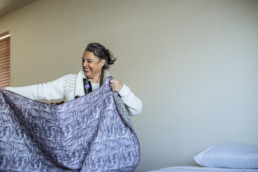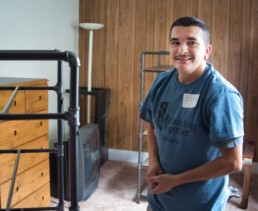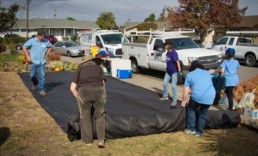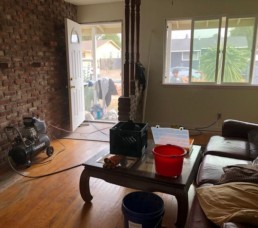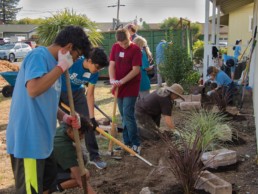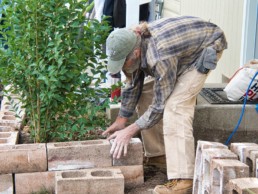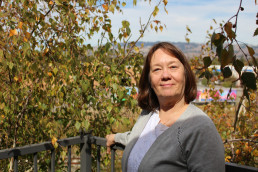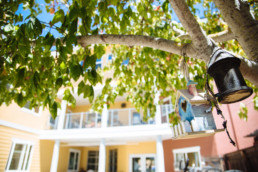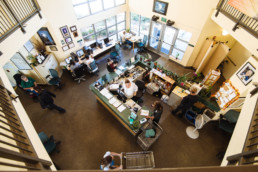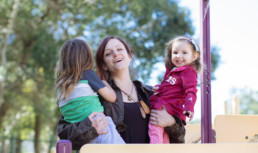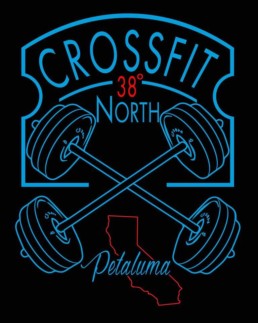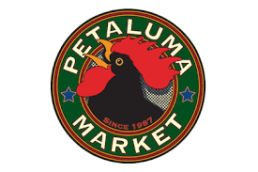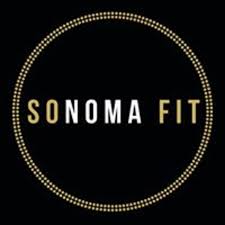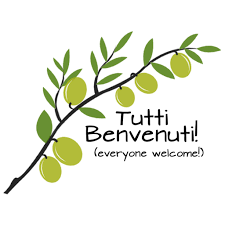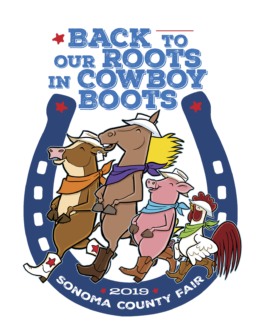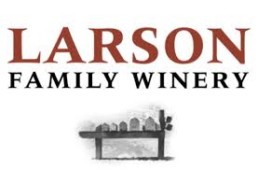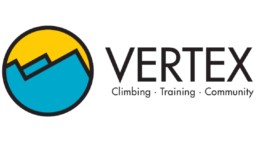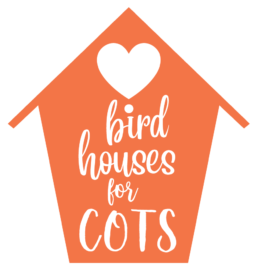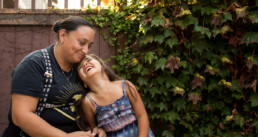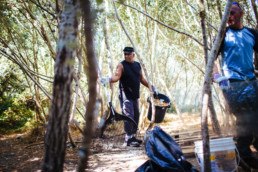COTS November Newsletter
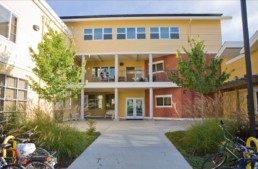
Fire aftermath
During the recent Kincade Fire, the staff at the Mary Isaak Center were proud to provide a warm welcome to anyone in need. Our shelter was full to bursting with new residents displaced from the streets or local encampments. We also opened our day-use services to evacuees, including showers, laundry, and meals at Mary’s Table.
Now, the smoke has cleared, but we’re still rubbing our eyes in wonder over everything you did for us.
When we asked for sleeping bags and towels, you answered. When we asked for toiletries, you answered. When we asked for food, you answered. This community answered every call we put out for supplies and support. Thank you for giving back when it is needed most!
We’re still full to the rafters, bedding down an extra 30 to 40 people a night in our Mary Isaak Center dining room. With the nights getting colder, we could still use a few additional items, including new socks and underwear, gloves, scarves, hats, baby wipes and sleeping bags. Donations can be brought to the Mary Isaak Center at 900 Hopper Street on Tuesdays, Thursdays, or Saturdays from 2-5 p.m.
We are so thankful for your help serving those who are most vulnerable right now.
Holidays at COTS
Gobble, gobble, gobble; ho, ho, ho; dreidel, dreidel, dreidel; and an auld lang syne. The holidays are coming! Can we make them shine?
We know we can—because you come through for COTS and our clients every year! Thank you.
Here’s how you can help this year.

Thanksgiving and Christmas
We would love your donations of frozen turkeys and commercially-produced pies at the Mary Isaak Center, 900 Hopper Street, Petaluma, Monday through Thursday between 9 and 11 a.m. and 2 and 5 p.m.
To find an alternate drop-off time, please call our Community Engagement Specialist Diana Morales (707) 765-6530 x 136 or email her at dmorales@cots.org.
Like all our lunches and dinners, the Thanksgiving and Christmas day meals are free to anyone in the community who’s having a hard time making ends meet.
There’s no application or paperwork involved. The only question we’ll ask is, “Did you get enough to eat?”
Last month, we served a record 7,800 delicious meals to those in need, but Thanksgiving and Christmas Day are extravaganzas. If you’d like to help serve over the holidays, Diana (contact info above) would be delighted to hear from you! Many of our core volunteers take time off during the holidays, so we would love your help!
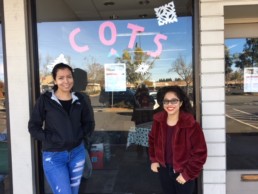
Holiday Free Store
Our Holiday Free Store opens for donations on Saturday, November 30. The Free Store serves our shelter residents and the over-400 people in our permanent housing programs. This year, we know a lot of people missed work or encountered extra expenses because of the fires so we’re opening the store to as many of them as we can, too.
How does the free store operate? We ask for donations from the community of toys, clothes, personal care products, and gift cards. Then we invite parents to shop for a set number of gifts for each of their children. We have a separate shopping area for children to pick out little presents for their parents. There’s an area for gift-wrapping and another for games, art projects and cookie decorating. Santa is bound to drop by a few times, too.
We’re still finalizing the Free Store’s location, but you can find donation hours and needed items at cots.org after November 18th.

Invest in Transformation
Nothing is better for a child than to be in a stable home. With a financial donation to COTS, you can give the best holiday gifts of all: wraparound care, stability, and a permanent home—all year long.
Last year, COTS served over 1,200 people across all our programs. And after the recent fires, we are sheltering more than 180 people per night. Your support ensures that our clients, from families to veterans, have access to the resources they need to get back on their feet.
Thank you for investing in COTS and in this crucial work.
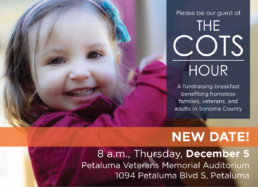
The COTS Hour
In light of all the re-grouping that people, businesses and organizations are doing post-Kincade fire, COTS rescheduled The COTS Hour. We’re now holding it from 8 to 9 a.m., Thursday, December 5 at the Petaluma Veterans Memorial Auditorium. You can RSVP here.
The COTS Hour is our annual breakfast fundraiser and it’s our opportunity to update you about the progress we’ve made in our shared fight against homelessness and our plans for the future. You’ll hear from clients, staff, volunteers and COTS leadership. The breakfast is free and all giving is private.
Please join us. We can’t wait to show you our work!
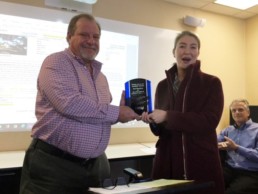
Karl Bundesen, left, accepts an award of recognition from Jamieson Bunn, Director of Development at COTS
Century 21 Bundesen
We are filled with gratitude for everyone involved in the COTS Raffle this year. For the second year in a row, Karl Bundesen and his team at Century 21 Bundesen put the raffle together with the help of dozens of local restaurants. With the help of everyone who bought tickets, the raffle raised over $21,000 for COTS!
Please click here to see all the restaurants who donated gift certificates. Thanks to the hard work of people at Century 21 Bundesen, too many people to name bought tickets.
Century 21 Bundesen has been in the fight for a long time, and we are lucky to have them on our side.
Congratulations to the four lucky winners who each won an assortment of gift certificates to Petaluma’s finest restaurants.
Are you a restaurant owner, who’d like to donate a gift certificate next year? Please contact Crissi Langwell at crissi@bundesen.com – and thank you for your support!
It was a Spooktacular Halloween
Smoky skies made Halloween spookier than usual, but that didn’t stop COTS kids from donning disguises and searching out sweet prizes. There was no school, so we had a party at the Kids First Family Shelter and then the older kids took to D Street for trick or treating.
Pictured: One of our KFFS kids dressed up as a baby shark
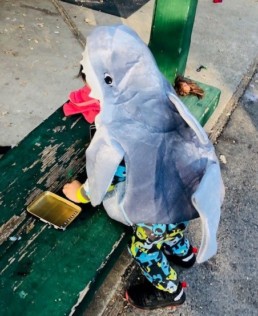
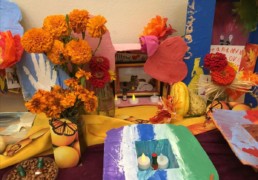
Drawbridge makes a difference
Drawbridge, an arts education nonprofit, brings arts and crafts to kids at our shelter and at Vida Nueva, an affordable housing apartment complex where COTS provides support and services. “Suzy from Drawbridge was a godsend to my son,” says one mom who’s moved her family from shelter to permanent housing. “It was a hard time for him to be far from his friends and not to have privacy. Art was his outlet.”
Most recently, Suzy helped our kids at Vida express their love for family and their creativity by helping them create a Dia de los Muertos altar. She taught them about the traditions around the holiday and provided a space for them to honor their loved ones. Thank you to all our volunteers who help create a sense of community for our clients, showing through your actions that we are all family!
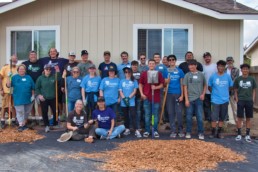
Extreme Makeover
You’ve got your swarm of bees, your bevy of swans, your colony of weasels and your shiver of sharks. What do you call a group of volunteers who rehab a house in one day?
How about a boon of heroes? An alchemy of altruists? A gathering of gallants?
Whatever you call them, they deserve a celebration!
Last month, Rebuilding Together Petaluma transformed one of COTS’ Integrity Houses, a place where six adults, most of them elderly, all of them on fixed incomes, have found permanent housing.
Some 32 volunteers converged early on a Saturday morning and cleared back and front yard of debris and weeds, put down ground cover and mulch, trimmed bushes and erected a shade structure.
Inside the house, they cleared a junk room and made it a sitting room and they ripped out carpet so that we could install flooring.
A few volunteers came back later that week to fix the house’s gates.
The residents are agog at their new digs and delighted to spend more time outside.
Many thanks to all the volunteers, including 13 Casa Grande High School students and skilled volunteers from Ohana Construction. Rebuilding Together converged on several houses that same day. Wells Fargo helped them cover costs. Many thanks to Wells Fargo as well!
Rebuilding Together has been a longtime COTS supporter. In the last eight years, the nonprofit organization has provided COTS with labor and supplies valued at over $350,000!
Donate your car on Giving Tuesday and Donate for Charity will waive its admin fees!
Buying a new car? Getting rid of an old one? We’ve teamed up with Donate For Charity so you can easily donate your vehicle. They will arrange for your car to be picked up and handle all the issues associated with donating your car. We certainly appreciate our donors considering this option to help support our cause.
You can either click on the Vehicle Donation Form link, or call Donate For Charity directly at (866) 392-4483.
If you donate on Giving Tuesday, December 3, Donate for Charity will waive all its administrative fees.
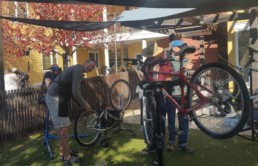
Pictured L to R: Bicycle repairmen David Ortega, Matt Muldoon, Mike Moore, Jim Hudson, and Dana Teicheira
Petaluma Wheelmen to the rescue!
Bikes are the way most folks at the Mary Isaak Center get around. And just like cars, they need repairs and regular maintenance.
Many, many thanks to the Petaluma Wheelman, who regularly come by to repair and tune up our residents’ bicycles.
Sunday’s session was a big success. We are grateful for the club’s volunteer work and for their commitment to our residents, who can now pedal in safety.
Petaluma Sunrise Rotary, WeTourCA (a Petaluma-based bike tour company) and the Petaluma Wheelmen pay for all the parts.
COTS October Newsletter: Victories, Great and Small
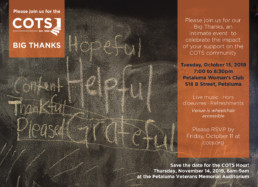
May we celebrate you?
Please join us at The Big Thanks on Tuesday, October 15!
This is our annual celebration of all our supporters—volunteers, donors, partners and advocates. Here’s what our CEO Chuck Fernandez shared in a recent letter to the Argus Courier.
EDITOR: As CEO at COTS, I write a lot of thank you letters and make a lot of thank you calls. Right now, thanks to our supporters, on any given night, we’re able to provide supports to over 400 people in permanent housing and over 140 people in emergency shelter.
Throughout all our programs in our last fiscal year, we served over 1,200 people.
That’s a lot to be grateful for.
We usually thank our supporters one-by- one and group-by-group.
But once a year, we invite them to come together to celebrate what, together, they make possible.
We invite all our supporters — donors, volunteers, partners and advocates — to join us from 7 to 8:30 p.m., Tuesday, October 15 at The Petaluma Woman’s Club, 518 B Street, for a wonderful evening of gratitude, great food and drink, live music, fun activities, friends and an update on our work.
Thirty-one years ago, this community willed COTS into being. You’ve stayed committed to the cause, donating thousands of dollars and volunteer hours year after year. Together, we’ve sheltered and housed thousands of people and made the community a better place for everyone. Please let us honor you.
The Big Thanks is free event. Please RSVP at cots.org.
Chuck Fernandez
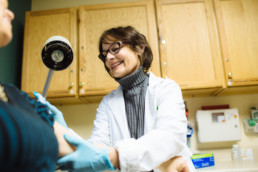
Day Use Services at the Mary Isaak Center
Over the last few months, staff at the Mary Isaak Center have found new ways to welcome those in need to our campus to improve their health and wellness. In July, we expanded our meal service to the community so that anyone experiencing hunger can join us for both lunch and dinner. At the same, we opened our shower and laundry facilities on Wednesdays and Fridays, so that people living on the street might come in from the elements and have a chance to get clean. With so many new programs underway, we created a new postcard for our community to provide information on all COTS’ Day Use services. You can view the postcard here or on our website to learn more.
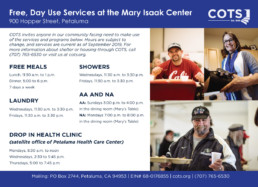
We are especially grateful to the Redwood Gospel Mission for partnering with COTS for our Friday shower program. And thank you to all our supporters for helping us provide food and comfort to our clients and the wider community. We could not do it without you!
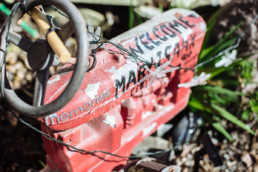
What are we grateful for this week?
A dad and his son moved from our Kids First Family Shelter into our Integrity Housing program yesterday! That’s permanent rental housing that will provide both dad and son a chance to regroup and move on with their lives!
A single woman who’d been staying at our Mary Isaak Center also found her own apartment yesterday. She will be moving in soon and putting homelessness behind her.
As we celebrate these transitions, we are looking for volunteers to help welcome our families to their new homes. Community Engagement Specialist Diana Morales is gathering materials for welcome home baskets: cleaning, kitchen, and bathroom supplies inside a laundry basket. These baskets give clients all they need to care for their new space. If you can help, please contact Diana at dmorales@cots.org.

Housing Navigators at COTS are tasked with helping clients find and keep permanent housing. Their work puts them on the front lines of the housing crisis, and each day they see firsthand how the lack of affordable units affects our community.
In the face of our housing crisis, how do you stay motivated and hopeful?
Gold, Housing Navigator:
You have to stay focused on what’s in front of you what it is that I have to get done for that day. If I were to extrapolate my worries and my concerns on a larger social scale, I think it would be a very paralyzing thing to deal with. It’s a good thing to think about those things once in a while, but in order for me to help the next client on my list get housed, I have to stay focused.
Crista, Housing Navigator:
Every win here is huge, and I think that no one is greater than the next, so to keep that in mind, that every day is a win, whether it be our pilot shower project or our laundry day, whether it be the additional dinner opening up to the public, or whether it’s another person off the street into the shelter or from the shelter into permanent housing. Every win is monumental, so we cannot just look at the big end goal as the victory because every day there’s small victories that keep this place running.
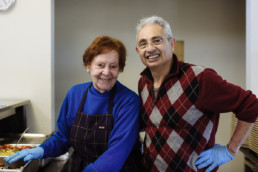
Marge Popp, left, with fellow long-time volunteer Edgar Marroquin, right
Volunteer team spotlight
Marge Popp’s Tuesday Team at Mary’s Table has cooked together for decades. Three of the four date their volunteering to over 20 years ago when the kitchen was operated by the St. Vincent de Paul Society.
On Tuesday, after putting some pork on to stew, they took some time to tell us what brings them back to the Mary Isaak Center every week.
“Feeding the hungry. It doesn’t get more obvious than that,” said one. “I’m blessed in this life, and I want to share with others.”
Marge shared that interacting with our diners is an important reminder to her to be grateful for the things she has.
The socializing isn’t bad either. “We’re like extended family, like sisters,” said one of the Tuesday crew. They’ve seen each other through family joys and sorrows, through illnesses, challenges and triumphs. “Sometimes I think we know each too well,” she laughed.
If you’re interested in joining a team or just volunteering once or twice, please complete a volunteer application at cots.org.
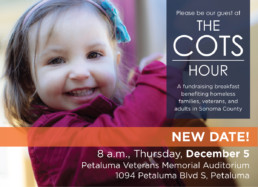
Save the Date: The COTS Hour is December 5
We can’t wait to share our work and our gratitude with you at 8 a.m., Thursday, December 5 at the Petaluma Veterans Memorial Building, for the COTS Hour: our annual breakfast and COTS‘ largest fundraiser of the year.
This free event will give guests an inside look at our life-saving programs, and introduce you to a client whose life has been changed by your support.
This year’s story will inspire you, and show guests how every community member can play a role in serving, uplifting, and healing those in need.
Breakfast is catered by Preferred Sonoma Catering and Petaluma Coffee & Tea. Thank you to all our donors and sponsors for your generous support. Your investment makes miracles possible, and we are so excited to share your impact with our community!
You can RSVP by clicking here, or by calling Eileen Morris at (707) 765-6530 x128.
Staff Profile: Diana Morales
Diana Morales was COTS’ Employee of the Year in 2018. She won the honor because of her competence and her kindness toward our clients and her colleagues. Diana worked at the front desk, often late into the night, juggling many duties, the most important of which was to listen to our residents and encourage them.
Recently, she took the job of Community Engagement Specialist.
What do you do for COTS?
I’m the Community Engagement Specialist. I started in September. What I do is right there in the title. I’m here to engage the community in what we do here at COTS and how we do it. So many people want to help. I’m that bridge to help them come in and see what we do and how they can get involved.
I’ll give people tours, I’ll answer questions, I’ll come speak to groups, I’ll go to events.
I’m looking forward to working with all the businesses and groups who provides goods or services for us. I want to make sure they know how grateful we are and how much of a difference their gifts make.
A big part of my job is working with our volunteers, who are wonderful. I schedule them in a variety of jobs. Our biggest need is at Mary’s Table, where we’ve just expanded our community meal program. We’re also building other opportunities because we’re trying to increase our programming for children.
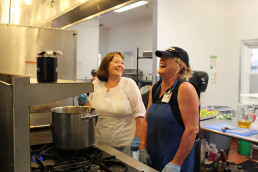
Why were you interested in this work?
I’ve worked at COTS for several years. But I first came to COTS as a resident. I was living in the shelter. My self-esteem was shot. I couldn’t even look up from the ground. When I went through the food line, the volunteers always had a big smile for me. They asked me how I was doing, and I had to hold my head up to answer them. And doing that every day—that helped. The volunteers made a beautiful quilt for me which I still have on my bed—a thing of such beauty for me! I couldn’t believe it. They helped me find clothing, and that helped me hold my head up, too. Volunteers helped me in the Rent Right class, they helped me open my eyes about the challenges of living here in Sonoma County. Volunteers helped me get ready to go back into the working world. They helped me find a job. They were integral to getting back my self-esteem.
I truly believe and always have believed that our volunteers hold us up and allow us to do our jobs. They are like the bones of COTS and all our programs. So, I am thrilled to be doing what I can to strengthen the volunteer program and support our wonderful volunteers.
How has your experience serving our Mary Isaak Center residents helped prepare you for this job?
The most important skill for my job is listening. That’s the number one thing whether I’m working with residents or volunteers. My job is not about me. My job is helping COTS and helping the people who help COTS.
What’s your dream for this job?
When I get up in the morning, I go over my gratitude list. I want to always remember how great it is to get up and do work that give me such pleasure. At the end of the day, I don’t know who’s helped more—me or the people I’ve been helping all day. I get to lay my head on the pillow every night and fall into a deep, happy sleep because I know I’ve done what I can.
I want to make sure volunteers feel the same way.
I want to help create an atmosphere where our volunteers get up in the morning and they smile and say “I’m going to serve food today.” Or, “I’m going to clean out the fridges or read to the children.” I want them to smile and say, “Today is the day I rake leaves.” I want them to be fulfilled and embraced in their roles.
Who has inspired you?
My former mother-in-law. She was a nurse her whole life. Her home is literally a place where family goes to live out their last days. She has suffered so much loss but helped with the passing of so many. She’s amazing: kind, soft-spoken, smart, and interested in everything. She learned Spanish in her 70s so she could communicate better with her patients. She taught me how fulfilling it is to help others. It’s a two-way street. You help others and in return, you get a feeling of completeness. Mind, body and spirit are all taken care of when you help other people.
What would you say to someone who’s interested in learning more?
I am so proud to work here. I believe in what we do. I want to tell the world, “Look, this is going on! Let me show you what we’re doing here!” I really believe in this. I’m one hundred percent in.
I would encourage people to get in touch, come over and see what we do here and get involved doing something they like to do.
Rachell
“My job,” says Rachell Salyer, “is to help people turn an overwhelming beast into a bunch of tiny monsters that we can slay one at a time.”
The beast: finding and keeping rental housing in this crazy market.
The monsters: low income, troubled credit, low-wage employment, lack of inventory, poor health, crazy competition, high rents, lack of knowledge or time or confidence or childcare or—you name it!
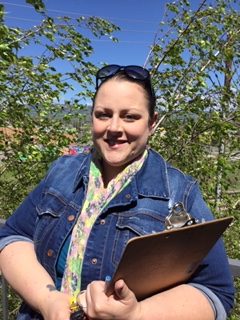
Rachell works at our Laure Reichek Housing Hub in Santa Rosa as a Housing Navigator in one of our Rapid Re-Housing programs—this one, community-funded to provide short-term financial assistance and services to the first and second wave victims of the 2017 fires. Since July 1, she’s helped house 94 people, 27 of them children. One hundred percent of her participants have remained in their housing after COTS’ rental assistance ended. And she’s well on track to house at least 33 more people by July 1, the target we set with our funders.
How does she do it?
Empathy and respect are her first tools, she’ll tell you.
Rachell remembers a time in her own life when she needed help. “I remember how people treated me. And it wasn’t good,” she says, her eyes steely at the memory. “I make an active choice every day never to do that to anyone.”
“I’m honest with them about the state of affairs in Sonoma County, the challenges that they’re facing,” she says. “I acknowledge how hard they’re working and how hard they’re going to have to keep working. I grew up here. This situation is not normal.”
Housing that the client can keep after COTS’ support ends is going to look different for everyone. One large family might need a house, another might be willing to squeeze into a one-bedroom apartment. Another participant might know that shared housing is the only affordable, long-term solution that will work.
“The plan has to be something they come up with themselves and that they believe they can sustain,” Rachell says. Her role is to help clients analyze their options, and to give them tools, encouragement and feedback.
Discussions nearly always start with money. Of necessity, most of her clients are expert at living frugally, but many of them need help anticipating expenses that come up irregularly; once they’ve crunched the numbers, most decide they need to increase their income so that they’ll be able to pay their rent once COTS’ time-limited assistance ends.
“We break things down into steps,” Rachell says. “First, I ask them what kind of work they want to do, what kind of income they want to earn. We look at the cost of living. We look at what the experts say.”
She sticks with her clients every step of the way. Her experiences with a young man we’ll call “Robert” illustrate the point. Robert’s Santa Rosa rental burned in the fires and he was living in a FEMA trailer. He kept his job, working for a local nonprofit, doing work he’s passionate about, but he couldn’t find or afford a new rental. He and Rachell talked about his professional goals. He wanted to stay with his employer because he loves the agency’s mission, but he had to make more money.
Rachell helped him update his resume, and along the way, helped him recognize all the skills he’d developed during his career. She sat down him for mock interviews, in which she helped him discover an authoritative, confident voice through which to express his passion for his work. When he got a promotion and a $3 per hour raise, she celebrated with him and helped him plan how he’d put that additional money to work and how he’d position himself to earn even more. He’s in a shared rental now, something he can afford.
“You have to celebrate every achievement along the way,” Rachell says. “You can’t wait. You have to let people know you see them, you see how hard they’re working.”
It’s also important not to kick people when they’re down. “If someone fails, the last thing they need is me telling them. They are fully aware,” Rachell says. Instead, she listens when people face set-backs. “I let them reflect on what happened, and I give them my perspective. I remind them of all the things they’ve done for themselves. Then, we talk about what’s holding them back and how they want to address it.”
She keeps paperwork to a minimum when she’s with clients. “I want them to know they’re my priority. They have my attention.” That means doing notes and follow-up assignments immediately after a meeting.
Rachell’s supervisor Emily Quig credit Rachell with creating administrative and application systems that allow us to put clients first while still fulfilling our reporting obligations. “She has a great balance of head and heart.”
The beauty of the Rapid Re-Housing program is its flexibility, Rachell says. About 25 percent of the clients don’t need much beyond a couple of meetings, a few text messages and a deposit or a small amount of rental assistance. “I don’t need to make them jump through unnecessary hoops. But I can also be there for people who need more. I can meet with people at their homes or in a coffee shop or park or in our office—whatever they’re most comfortable with.”
“I get thanked a lot,” Rachell says, “and that’s nice, but I always remind people that they did the work. I gave them tools, but they used them.”
Diversion
Linda knows better than anyone that shelter should be a last resort.
That’s because it was her last resort two years ago for five months while she recovered from emergency brain surgery.
Now, she works as a COTS’ Diversion Specialist, helping people avoid the disruption of homelessness and shelter living. “I was treated well when I stayed here,” Linda says. “I got the help I needed, but there’s not much sleeping, not much rest in a shelter. You always feel off balance.”
She does whatever it takes to help people regain their balance in housing. For some, it’s as simple as pointing them to a program that will help them pay their delinquent utility bill; others may need help with paperwork or a rental deposit. But many others need more assistance.
Take the 23-year-old woman who was living in a car with her husband and her daughters, ages 2 and 3. Study after study shows that homelessness—especially if it’s prolonged—can stunt children’s development. “The husband was working. They had a great income, they wanted to provide a home,” Linda says. “But they had bad credit.”
Linda helped the couple make targeted payments to improve their credit in a landlord’s eyes, and then, because they’d spent their reserves on credit repair, she lined them up with a program to help them cover their rental deposit. The family moved to an apartment of their own shortly before the New Year.
For some people, Linda has to be a lion. Recently, a mom got in touch with Linda because she’d gotten two months behind on her rent. Her daughter has Cystic Fibrosis and the mom had had to miss work to help her manage her illness.
In the nick of time, Linda found a foundation that could potentially help. But with only days left until the duo would lose their housing, the foundation’s administrative staff weren’t hopeful that a request could be approved and finalized in time. Linda turned to Google and found a way to get in touch with officers and leadership staff who authorized immediate assistance. The mom has found a teaching job and should be able to cover her rent from now on.
“There are a lot of sick people who need help,” Linda says. “They’re tired. They need advocates.”
COTS' Annual Hops for Homes
Music, food and good company—Hops for Homes on April 23 has you covered.
But that’s not all!
You can shop early for the holidays—for all of them for the next decade—at our silent auction. Or you could win big in our raffle.
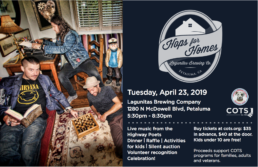
Here’s a list of our offerings (come back soon for updates). Many thanks to all our donors!
Food and other finer things
Learn to make a special dish at the renowned Tutti Benvenuti Cooking School—or just use your gift certificate to let someone else cook for you!
Learn some new recipes with a deluxe cookbook from Copperfield’s.
Petaluma Market offers a gorgeous basket of their finest wares.
Dine in style with gift certificates from Lunchette; Pongo’s; Stockhome; Sugo Trattoria; Wild Goat Bistro; and Café Zazzle.
Family Fun
Take the kids and their friends to the Sonoma County Fair. Animals, rides, crazy food, live music, talent shows and expositions!
Try Ziplining, courtesy of Sonoma Canopy Tours.
Take the kids to bounce at Rebounderz! Pro tip: parents can hang out on the balcony, above the hubbub. There’s free wifi and the seats are comfortable.
Gardening
A Sustainability basket from the Petaluma Seed Bank will give you a jumpstart on your garden and your sustainable life style.
Enjoy a gift certificate and the scenery at the lovely Cottage Gardens.
Brush up on your gardening techniques, thanks to a book from Copperfield’s.
Pampering and shopping
Kit Lofroos gives the best massages in all of Petaluma. See for yourself with a gift certificate for a relaxing and restorative massage.
KM Herbals donated oodles of natural lotions, soaps and potions.
McEvoy Ranch did the same—and they added wine.
Nan Winters, the fashionista of Kentucky Street, donated a gift certificate.
Hollingsworth Jewelry’s been voted the best jewelry store for ten years running. You can find out why when you win their gift certificate, good for merchandise or jewelry repairs.
Jenny from Spiral Jewelry donated one of her lovely designs, a silver necklace with an oblong pendant. She also donated a gift certificate.
Fitness Sampler
In a fitness rut? Change things up with our fitness sampler, featuring: a set of passes to Renew Yoga; a set of passes to Crossfit 38 Degrees North; a month’s membership to Sonoma Fit; and passes to Vertex Climbing Center. We’ll round that out with a few Camelbak accessories.
Art and Decor
We have so many beautiful things made by so many wonderful artists and craftspeople.
COTS founder Laure Reichek sells her crochet work in a Point Reyes boutique. She held some back for COTS, though. At Lagunitas, we’ll have some of her finest work available: a shawl, hats, baskets, and baby wraps.
Renowned local ceramist Nuala Creed provided a lovely vase in the shape of a woman with garlands of flowers and birds in her hair.
Robert Carson donated an elegant pendant lamp upcycled from industrial bobs and bits.
Our own Quilters for COTS have collaborated on a dramatic quilt that would be the focal point of any room.
The Bird Houses for COTS crew has also been busy, creating one-of-a-kind birdhouses for your balcony or patio.
Marisa’s Fantasy is not just about Christmas. The proprietor donated a lovely all-season vase and paper napkins.
Theater and Music
Get out of the house!
The Green Music Center donated four ticket to see the world-acclaimed Kronos Quartet.
We have theater tickets from Marin Theater Company, Spreckels Performing Arts Center, Cinnabar Theater, and Berkeley Rep.
We have tickets and tees from the Cotati Accordion Festival.
And, we have tickets to Santa Rosa’s Laugh Cellar.
Travel
Stay close to home with a certificate to stay at KOA, or travel east for a one night stay for two at the River Terrace Inn in Napa.
Wine, Beer and More!
Wine country has been generous.
Sonoma Portworks offers a gift certificate.
Jason Baker, the wine-maker who wowed at our Big Thanks event in October, has provide more of his miraculous merlot.
Lagunitas is donating a lovely prize as is Hen House Brewery.
For those of you who like to travel to the terroir, you could win a wine tasting at the Deerfield Ranch winemaker’s home or a tour and tasting at Castello di Amorosa.
Additional Donors:
Pete Brown
Bill Gabbert
Judy Tuhtan
Anita Smull
James's story
James joined the Marines at 17. “I was mad at everyone,” he says, “and I just wanted to get away.”
He’d lost his Dad four years earlier. James was himself in intensive care at the time, after having been hit by a drunk driver. He didn’t get to see his Dad before he died. “I was in a hospital in Novato and he was in a hospital in San Francisco. I went the bad way after that,” he says.
While in the Marines, James suffered a sexual assault. Admitting victimization in the armed forces isn’t an easy thing today. But it was unthinkable in the 1980s. As a result of the trauma he couldn’t acknowledge, James’ on-the-job performance suffered. He left the service without an honorable discharge--and, therefore, without access to many of the services that could potentially help him.
James’ life after that was a seesaw. He’d muscle through long chapters of stability and prosperity. A jack of all trades, he’s at home in a restaurant kitchen, a hospital, or a construction site, and he did well at all his jobs for a time. But he was also contending with undiagnosed depression and panic and anxiety attacks. Drugs helped, but they also made him homeless several times. “Pretty soon, I’d be out there ripping and roaring in the bushes,” he says. “It was inevitable.”
In his 40s and 50s, he thought he had it licked. He had his own apartment, good jobs, and savings. He saw his Mom regularly and helped her out around the house.
But while he was away on a construction site, his Mom died. Once again, a parent died without a farewell. James’ sister and best friend died shortly after and James fell apart.
He was camping in the bushes around the Mary Isaak Center, coming in for lunch. “[Shelter Manager] Silvia told me how to get a bed,” James said. But she and James’ Housing Navigator Pamela didn’t let him stay in that bed too long. “I woke up in my bunk one day and they were there, telling me it was time to go to treatment.”
“I went because I knew them and trusted them,” James says. “I also knew that I just didn’t have another run in me.”
After James returned from treatment, Pamela helped him find housing in Petaluma in a house dedicated to homeless veterans. “I see Pam every week. She comes out to the house to check in. It keeps me connected.” Pam helped him connect with a therapist which is proving helpful. He also values the connection he’s made with Annie Nichol, the Petaluma Heath Care Center nurse practitioner headquartered at the Mary Isaak Center.
He’s taken on a leadership role in the local recovery community “which helps a lot. It’s good to be busy and helpful,” he says. Pamela encouraged him to take care of his health, so three days a week, James joins a roomful of women for a kickboxing class. “In a lot of ways, this has been the most powerful part of my recovery,” he says.
Angela's Story
The light’s best in the kitchen, so Angela’s cello is set up there, the sheet music propped on a painter’s easel next to the fridge, ready for her to bow through a few measures every day. Over the holidays, she and her brother gave an impromptu concert for their mom, Angela’s first in many years.
Music was the through line of her childhood, and it feels good to return to it after many years away.
What else feels good?
Feeling. Feeling everything that life throws her way.
But that’s new. “For most of my life I tried to avoid it,” Angela says. “That’s why I didn’t like sobriety. Stub your toe, feel the pain. Do something stupid, feel the pain. That was the last thing I wanted.”
Feelings of embarrassment and disgrace stalked her. She wasn’t the academic success her brother was. She cringed thinking of her parents’ disappointment. “I ground that relationship with my parents to nothing,” she says. Her romantic partnerships ended badly, in ways that made her feel devalued. Drugs were the cure for shame and discontent, but also the cause, and her days were a circle of discomfort and escape, panic and escape, anxiety and escape.
“I used to dream that there would be a hippie colony of women who would rescue me, beam me away to a sunny hill—just adopt me and solve all my problems.”
No magical hippies arrived, but when she lost her daughter to the child welfare system, a colony of other helpers began arriving, one by one.
The first was a woman who told her about treatment. “I just met her randomly the day after it happened, when I was a mess. Her name was ‘Angela,’ too, and she told me about a program. The next day, I was enrolled in residential treatment. In two weeks, I was visiting with my daughter. That woman was an angel in my life. I couldn’t have survived if I’d lost Christine.”
Post-treatment, and reunited with Cristine, Angela moved to COTS’ transitional housing and landed eventually in a permanent home--in an affordable apartment complex where COTS provides supportive services designed to help tenants retain their housing for themselves and their children.
“I wouldn’t be here in this apartment without Jim, my case manager in transitional housing. I wasn’t feeling confident, and he was determined for me. I needed that push then to even apply. I don’t know where we’d be without him.”
The next helper was at the new apartment complex. Copper was the first of several COTS-provided advocates Angela’s worked with over the years.
“She taught me to be gentle with myself,” Angela says. Copper shared research on how difficult childhood experiences often correlate with risky behaviors in adulthood. “She helped me make sense of my past. Things started clicking.” Copper also helped Angela develop coping skills. Angela’s apartment is full of reminders of those skills—a poster here, a set of stones there, a painting there, written reminders on the fridge.
After Copper left, Angela relapsed. “I was keeping it together at work. I thought I could have it all. I thought I could do it under the radar. Until I couldn’t,” she says. That brought her to her next helper, Copper’s replacement, COTS advocate Tisha.
“Tisha knew something was wrong, and she kept asking me to come in and talk with her. Finally, I did.” Angela realized she needed help if she wanted to provide stability for Christine. Tisha helped her arrange to go back to the treatment program she’d completed years before.
Another helper—Angela’s mom—stepped up then. “’We need to talk about your life. And you’re not going to like it,’ my mom told me,” Angela says with a laugh. Her mom took in Christine, enabling Angela to spend three months in treatment. Her mom also helped with rent, ensuring that Angela and Christine would be able to keep their apartment.
“I filed my taxes and paid her back with the return as soon as I got home,” Angela says. “She gave me a huge gift, but I vowed it was for the last time.”
Her biggest helper was herself. “Ultimately, I had to want it for myself. And I did. I had had enough. I remembered back to this judge. She demanded that I ‘live in transparency’—no lies. And that was what I finally wanted. That was how I wanted to raise Christine.”
Two years later, Angela is still sober and, thanks to the suggestion of another helper, Tisha’s replacement Melissa, she left behind a low-skills job for something she loves. “Melissa suggested I do an informational interview at a treatment center.”
That interview resulted in a career. Melissa helps people navigate the enrollment process at the center and has a small and growing counseling case load herself.
The job is full of surprises—or, rather, Angela finds herself on the job to be full of surprises. “I remember what it’s like, what it felt like to need help and not know how to get it. I don’t want to leave someone with the idea that no one cares. Somebody better care. Somebody better be listening. “
“I used to be really reactive. I hated to feel judged,” Angela says. But now, even during the most difficult conversations with stressed-out people, she keeps her cool and her kindness. “Sometimes, I listen to myself, and I’m like, ‘Who am I right now? Who’s talking?’” Angela says.
“I do the work every day that I know is meant for me,” she says. “I never thought much about my potential. Now, I’m interested!”
Angela now has a group of women friends who, like her, are in recovery. “They’re not the shiny-halo hippies I wished for way back when. They’ve been through it. They’re like soldiers to me.”
But she still treasures her relationship with Melissa. “I can walk down to the office and say, ‘I need to check in,’” she says. Conversation can be about a new goal or an after-school opportunity or an issue with neighbors. It can also be about feelings. They crop up again and again and they still feel new. It’s still good to have someone’s witness and support to go through them, Angela says.
Recovering from homelessness “takes a community,” she believes. “You have to leave room for people to get the support they need. Not everyone has it built-in.”
It's a good news week!
Magic words: “permanent housing”
Your support helped 24 COTS clients move into homes of their own just since Monday! Thank you. And congratulations to our clients and staff who used your assistance well and effectively.
More magic words
When most people think about COTS, they think about shelter.
But did you know that we provide the crucial supports to keep over 400 people in permanent housing?
That number is going up soon.
In partnership with St. Joseph Health, we’ve renovated the second floor of the Mary Isaak Center to provide 11 private rooms to vulnerable adults. This will be permanent housing for up to 18 people. Residents will be able to cook for themselves or eat in our first-floor dining room. They’ll be able to access services at the Petaluma Health Center’s satellite office at our facility. Most importantly, they’ll be able to rely on a COTS case manager to help them navigate doctor’s appointments, finances, personal organization and more.
Can you help us welcome our new tenants?
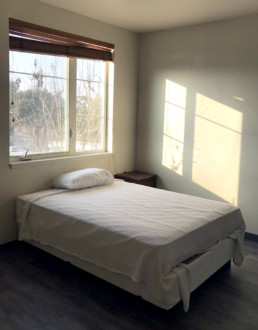
We are looking for the following new items:
- Small food storage containers
- Individually packaged snacks—no nuts please
- Fuzzy/cozy socks
- Both women’s and men’s underwear (new)
- Hard-to-kill house plants
- Framed, ready-to-hang artwork (we love original pieces)
- Shower totes (like students in dorms use) filled with personal care products:
- Disposable razors
- Shampoo/Conditioner
- Body wash
- Deodorant
- Toothbrush
- Toothpaste
- Comb
To donate items please contact Angela Pustorino at apustorino@cots.org. Thank you!
Outreach branches out
This week, Cecily Kagy joined our outreach team. She’ll be training under our Petaluma veteran Randy Clay and then serving the Rohnert Park/Cotati area.
Our outreach specialists reach out to homeless people discharging from hospitals, camping, or sleeping in their cars. The specialists build trust with their clients, encouraging them to make the life changes that will create a safer, healthier life for themselves and the entire community.
They collaborate with local business owners, police officers and health care professionals. We all have a stake in making sure that people are safe.
Pictured: COTS’ Lead Outreach Specialist Randy Clay and a COTS client help Petaluma Police with a camp clean-up; Randy Clay offering assistance in Petaluma’s Putnam Plaza
Meet your COTS team member, Margie Popp
This month meet...
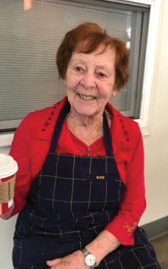
Margie Popp, COTS’ longest-serving volunteer and Lead Cook for lunch on Tuesday, Wednesday, and Thursday!
Margie has lived in Petaluma for all 94 years of her life. In 1945 she started working as an ‘office girl,’ 45 hours a week, earning 17 cents an hour. Margie worked for that same company for 38 years, before retiring in the 1980s.
When did you start volunteering at COTS?
Margie has been with COTS since the beginning. In 1982 a flood left many in Petaluma homeless and Margie started volunteering at a kitchen in the old fire station to help serve those in need. Eventually the kitchen became COTS and Margie continued helping there until the Mary Isaak Center was built.
Why did you choose to volunteer at COTS?
It’d be more accurate to say COTS chose Margie. COTS evolved out of the kitchen she was volunteering at and Margie stayed on. One day, the lead cook told Margie that she was leaving, and Margie was in charge now – and she’s been a lead cook ever since.
What do you like most about volunteering here?
Margie says the people, clients and volunteers, keep her coming back. There’s never a dull moment!
If you see Margie be sure to thank her for all her decades of volunteering and service to others!
